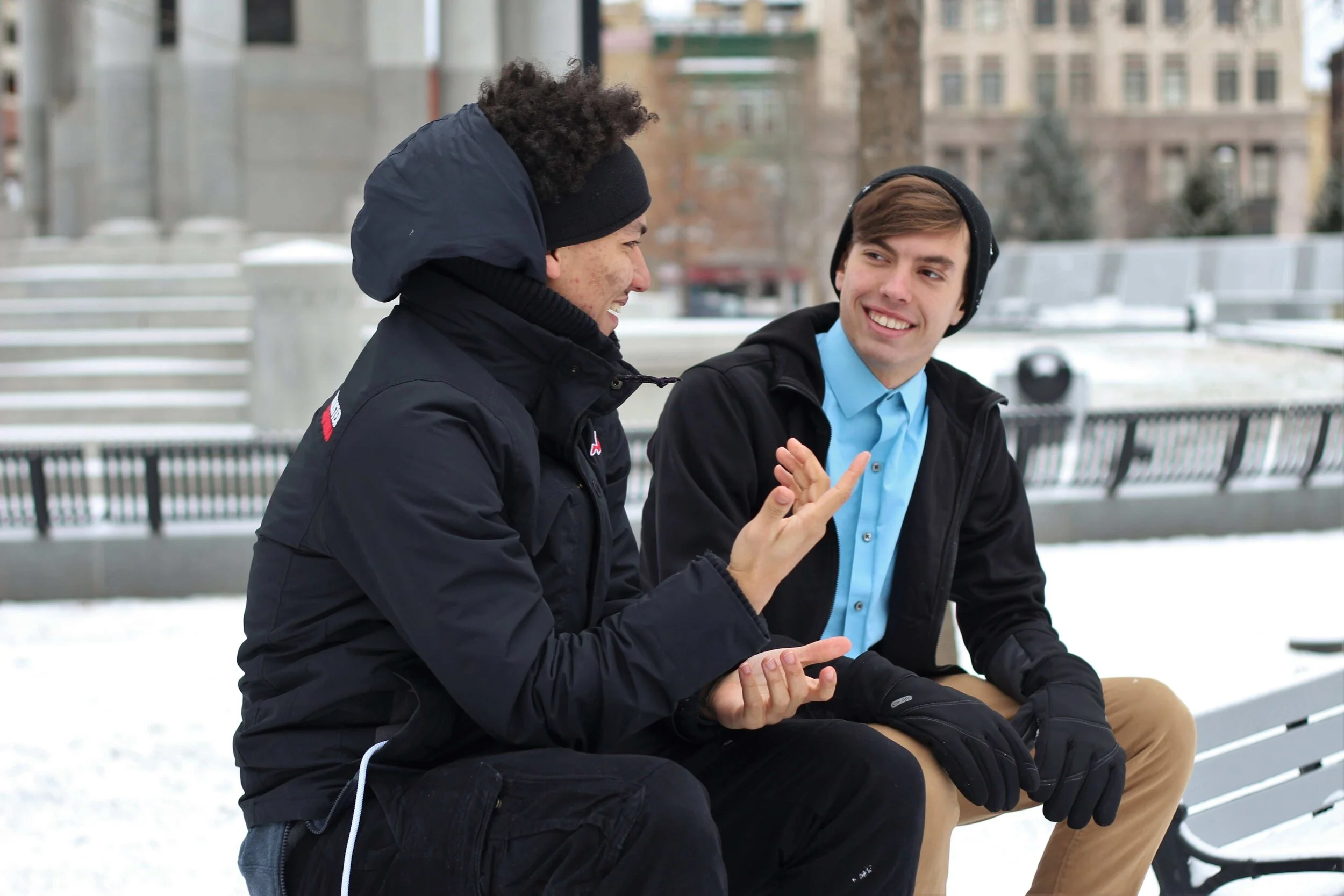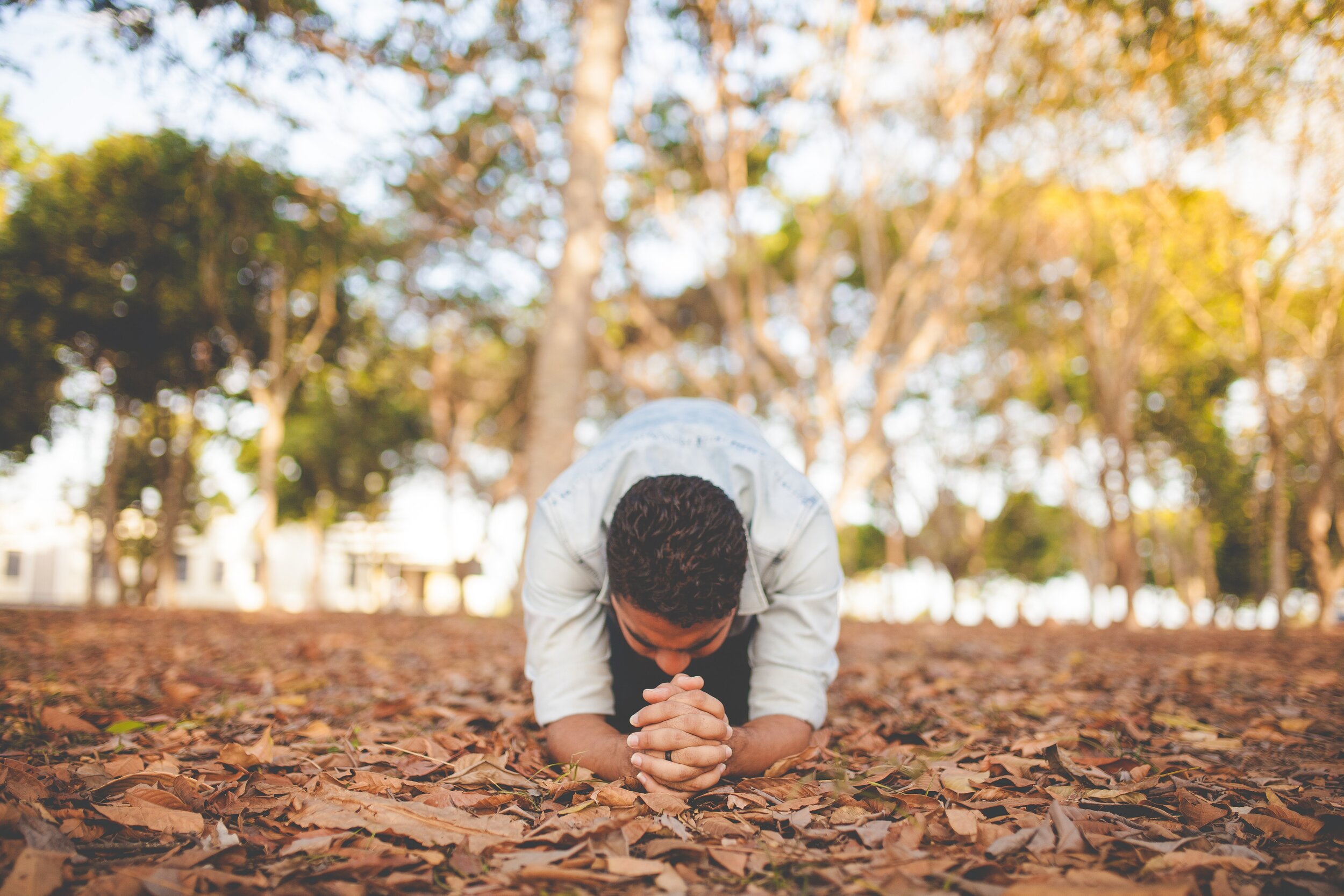The Islamic month of Ramadan is a time of opportunity to start conversations with Muslim friends and colleagues.
The Contested Eid
Ramadan Opportunities
Sharing the Reason for the Season
What Surprised the Arab Guest at the Carol Service?
Overcoming as faithfulness rather than victoriousness
Keeping Faithful
The fruitfulness/faithfulness debate
Hearing the Authentic Voice
Hearing the Authentic Voice
One of the many activities we may be looking forward to resuming as we gradually emerge from the COVID restrictions is the opportunity to travel abroad. For some of us, a visit to the library or to a local bookstore to obtain a travel guide for that region of the world is as essential a part of the preparation process as the packing of clothes, camera or suntan lotion. Not only do we want to visit an area and enjoy what it has to offer but we want to be guided by those who know the region well and can provide historical, cultural insight into what we are seeing and experiencing. We might also be emboldened to go “off piste” , away from the ubiquitous pizza and kebab bars to try the gem of an eating place, loved by the locals, where authentic food is served.
As part of the Mahabba resources offer you will begin to see book recommendations from those giving voice to their own experience of being Muslim in Britain. There will be some books which address this directly such as the excellent and up to the minute book “They” by Sarfraz Mansoor. There will be novels which invite us into family life and the arena of close knit communities where the constant and present challenge of living with a dual identity is faced by some with creativity and by others with real struggle. Some books may speak boldly and bravely about the experience and consequences of being shame bearers in the community - “Stained” by Abda Khan. Whilst others will give insight into the layers of barriers, both structural and personally created which prevent access for people to really flourish. “Parwana: recipes and stories from an Afghan Kitchen” by Durkhanai Ayubi may be of particular interest just now along with other such books which include poems and recipes which give a window into expressions of hearts’ desire and the appetite for sharing love through food.
Hearing the authentic voice, rather than the voice of the visitor or observer, whether we are on our travels or engaging with the world on our doorstep, offers us a deepening of our connection and understanding with Muslim people which, we pray, in turn, will bring a growing sense of mutual love and respect in our relationship-building.
Miriam Williams - a member of the Mahabba Network
See book recommendations here
Shi'a Joy!
Image Unsplash
Shi’a Joy!
It was just an experiment. I wanted to stretch my ‘faith muscles’. Stepping off the bus I quietly prayed: “Lord, here I am in a big city. I don’t know the area. I have never been here before - and I don’t know anyone here. Lead me to someone who will invite me to their house, and be like a ‘bunch of keys’ opening up the Muslim community to me.”
My prayer was answered in minutes! I called out to a Muslim man I saw across the street. I simply said: “Asalamu aleikum!” He asked me if I was a Muslim. “Oh no, I’m not a Muslim......but I love Muslims very much. I am a follower of Isa-al-Masih......Jesus the Messiah.” I went on to say: “I don’t bow down to idols. I worship the one true God, the God of Abraham.” At that, he took my phone number and invited me to his home. I was given a bowl of delicious lamb curry and chapatis, sweet milky tea, and a massive assortment of biscuits. He said he was a Shia Muslim, and his mosque had often been vandalised by Sunni Muslims. “They hate us!” he said, “and they tell lies about us. We don’t feel safe!” “You are safe with me!” I replied. “Jesus has taught us to love all people.”
He began to pour out his heart to me about family worries, financial worries, and lack of purpose and self-worth. I shared some encouraging verses of the Bible with him, and then he asked me to pray for him. How wonderful! What started as a bus journey into an unknown city opened up an amazing friendship for me. We keep in touch regularly - and I have even attended his daughter’s wedding as a V.I.P. guest! He invited me to his mosque, and I am now regularly in contact with others in his congregation - who also ask me for prayer! I was even given a guided tour of the mosque, and given a gift of a ‘Turbah’- the small flat stone that Shias place their foreheads upon when they prostrate in prayer. My mosque guide said: “Sometimes during the Muslim month of Muharram when we remember the martyrdom of Imam Hussain, it has been known for Turbahs to spontaneously ooze out blood.” She went on to say: “When you see the blood, your life will never be the same!”
“When you see the blood, your life will never be the same!”
That sounds like a theme for a gospel conversation! I will save that for another time.
Run to Muslims, don’t run away from them. Talk to Muslims - not merely about them. When you do this, you will find mission work brings you sheer joy. Or even better - Shia joy!
A member of the Mahabba Network
Although Shi’ite Muslims are in the minority there are some communities here in the Uk. The book ‘Heart Broken Open’ is a moving and insightful reflection from the experience of Ray Gaston, a vicar who spent 12 years in Leeds getting to know, work and dialogue with his local Shi’ite community. It offers moving and insightful reflections on what it means to walk in humility and vulnerability with people of other faith whilst at the same time having one’s words and actions shaped by scriptural reflection and Christian worship. It can be found here
For further information about Shias and Muharram see the resource My Muslim Friends at Muharram here
Sharing Stories at Eid ul Adha
Fisticuffs to Forgiveness
Image Unsplash
From Fisticuffs to Forgiveness
For several months the problem had been festering. Yusef had been making negative comments about Ibrahim, another brother who was occasionally given opportunity to preach, judging Ibrahim to regard himself as more spiritual than others in the group. Occasionally Yusef would make pointed or hurtful remarks in his presence.
One evening, following Bible study, something was said and Ibrahim responded by throwing a few punches. Their conflict was now public knowledge.
Jesus teaches the need to ‘go and be reconciled with your brother’ but I had learned from previous experience that this cannot be rushed. They first needed to individually seek God for forgiveness and grace towards the other.
In the days that followed I spoke with both men separately.
Yusef is slow to recognise where he has gone wrong in all of this. He is convinced that his earlier judgment is valid – after all, Ibrahim has just proved by his behaviour that he is not a good example! He knows that he needs to forgive his brother, yet feels he is owed an apology. God had a work to do in his heart.
Ibrahim is broken by his sin. He knows that hitting back is not the Jesus way. How could he have fallen into this trap? He needs to receive God’s forgiveness and he knows that he must also extend that forgiveness to Yusef.
We spoke about the fact that as the older, more experienced Christian he maybe needed to be the first to apologise for his behaviour. At this, his response was ‘You are asking too much of me!’ To take the first step towards reconciliation was to put himself in the lower position ... maybe there was a degree of truth in those accusations of pride after all?
I gently explained that I was asking nothing of him – simply pointing out what Jesus asked of us all.
As I watched the light comes on in his heart and mind I knew that he would find strength to make that first move. All I needed to do was sit back and pray for both men. God would do his work.
A couple of months later I watched as these two men stood together before God, arms round each other’s shoulders, heads bowed in prayer.
Forgiveness has been received and extended one to the other.
A member of the Mahabba Network
The Power of Ramadan and the Power of Prayer
Image Unsplash
The Power of Ramadan and the Power of Prayer
Dawud was a teenager who had been abandoned at birth. He had been cared for all his life by foreign missionaries in a Muslim town just south of the Sahara. He had been born lame in one leg and the missionaries had cared for him, raised him and got him medical treatment. They raised him as a Christian. He started school late and only reached high school well into his teens. Extreme variations in age in this school was not unknown. I taught there and found a woman in her thirties in what we would call Year 8.
Ramadan is the Muslim month of fasting. Muslims are required to fast from food and drink during daylight hours. The Islamic year is shorter than ours, so Ramadan comes at a different time each year. This one fell in June and it was phenomenally hot, over 40 in the shade most days. Two days into Ramadan, Dawud declared that he was a Muslim and would keep the fast. The missionaries were heartbroken. They had not seen this coming at all. Why would Dawud choose to embrace Islam at the very hardest time of year? He had not fallen out with his adoptive family. He was not under pressure from the authorities. He made a choice.
Peer pressure was a factor, but that does not do justice to what was happening. Ramadan is a community experience. It is not necessarily enjoyable, especially the first week as the body adjusts to going without during the day and then needing to be up much more at night, but there is a huge sense of being in it together.
I first saw Ramadan in action when I lived in Sudan. My Christian Sudanese friends told me that the Muslims all went a bit crazy in Ramadan; it was best to give them a wide berth. It was a good time to have Christian conferences and training days but not a good time to reach out. I knew from books what it was in theory, but now I saw it in practice. It is like an annual renewal event. Muslims who were backsliding and getting into bad habits, made extra effort. Those who were middle of the road tried harder. Those who were zealous became more zealous still. That sense of everyone pulling together is a major element. Dawud wanted to belong so much, he went without water all day in the blazing heat.
I found that Christian missionaries in my new location had much the same reaction as my Christian friends in Sudan. Ramadan was a time to back off. As a team we discussed it and decided to commit to praying months in advance that Ramadan would not slow the progress of the gospel. As the time got closer, we realised our prayer was too timid. We started praying that Ramadan would serve the gospel. That year we saw a huge difference – more interest, more openness and more responsiveness than usual. That was 1988, which I think I am right in saying was also the first year that the 30 Days of Prayer Booklet started.
Ramadan occurs every year, but at a different time, as it follows the lunar calendar. Find out when it starts this year. Does it have the same power in the UK? The question is not a simple one to answer. Some British Muslims really look forward to it as a very sweet time of year, others dread it and many are somewhere in between. Every Muslim household is affected as food and sleep times are changed. People know what they should be doing even if they are not. The sense of community is there, but often people find themselves in work environments that are not conducive to fasting. It is a very tough time for converts who are living with Muslim family. For those who feel a deep need to draw near to God, it is a time of seeking. We should be praying for these folk that God surprises them. For people who go through Ramadan reluctantly, breaking the fast and trying not to get caught, let us pray that their dissatisfaction leads to them to be open to other ways. Let’s pray too for believers caught in the tensions of the month.
If we know any Muslims as neighbours or colleagues, we should not hesitate to take an interest, to ask them how it is going and to listen sympathetically. We can tell them that we are praying that God will touch them, give them his peace and to bless them in greater measure.
Ted from the Mahabba Network



















